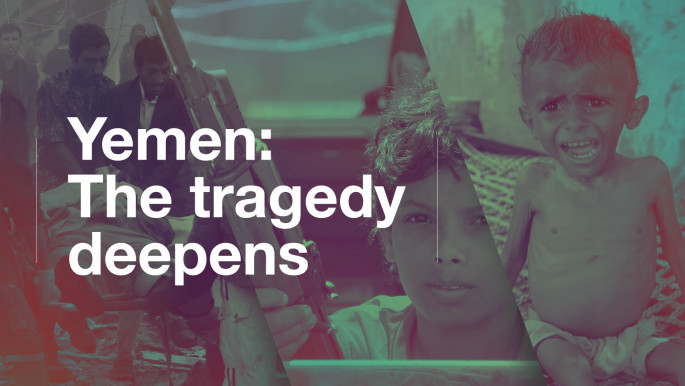Millions of Yemenis in 'desperate' health situation
"Thirty months of war, high prices for consumer goods and unemployment have had a massive impact on people," MSF said, adding that a "great number of children" suffer from malnutrition.
"Millions of Yemenis who cannot access primary health care (are in a) desperate situation," Ghassan Abou Chaar, head of the MSF mission in Yemen, said in the statement.
Health workers, as well as other public servants in the country, have not been paid for the past 13 months, the organisation said.
Yemen was plunged into civil war in 2015, when a powerful military coalition led by Saudi Arabia joined the government's fight against the Houthis after the rebels took control of the capital and other major cities in September 2014.
"It has been shocking to see the terrible impact of this man-made conflict," Mark Lowcock, head of the UN Office for the Coordination of Humanitarian Affairs (OCHA), who visited the Middle East's poorest country last week, said.
More than 10,000 people, mainly civilians, have been killed since the military intervention, and millions more have been displaced, according to the United Nations.
Another 2,100 people have died of cholera since April as hospitals struggle to secure basic supplies amid blockades on ports and the country's main international airport.
OCHA says more than 11 million children need humanitarian assistance.
According to the United Nations, the conflict in Yemen has left seven million people at risk of famine and an estimated 17 million – 60 percent of the overall population – food insecure.
 |
The conflict in Yemen has left 7 million people at risk of famine and an estimated 17 million food insecure |  |
‘Food a weapon of war’
The comments came after the UN's World Food Programme said food is being used as a weapon of war in Yemen.
"Yemen is on the brink of famine. Cholera is compounding a dramatic food crisis. Food is being used as a weapon of war," WFP assistant executive director Elisabeth Rasmussen said at a conference on aid to Yemen hosted by Saudi Arabia.
All sides in the conflict stand accused of failing to protect civilians in what the UN has called the "largest humanitarian crisis in the world".
The Saudi-led coalition, which controls Yemen's airspace and some ports, was this month added to a UN blacklist for the "killing and maiming of children".
While the roads inside the Yemeni capital are controlled by the Houthis and former president Ali Abdullah Saleh, travel to Sanaa airport is under the control of the coalition and limited to a select few aid flights.
Aid groups have warned that the closure of Sanaa international airport is hampering the delivery of desperately needed supplies, which now have to go through the Red Sea port of Hodeidah.
| Read more on the crisis in Yemen here: | |
 |





 Follow the Middle East's top stories in English at The New Arab on Google News
Follow the Middle East's top stories in English at The New Arab on Google News
![Israeli strikes on Lebanon [Getty]](/sites/default/files/styles/image_330x185/public/2183771465.jpeg?h=a5f2f23a&itok=6HT85VH2)
![Mike Huckabee [Getty]](/sites/default/files/styles/image_330x185/public/472248078.jpeg?h=d5a1c78c&itok=aWqBejYY)
![Abu Ghraib [Getty]](/sites/default/files/styles/image_330x185/public/187851171.jpeg?h=686c1625&itok=Cvcf2G7L)